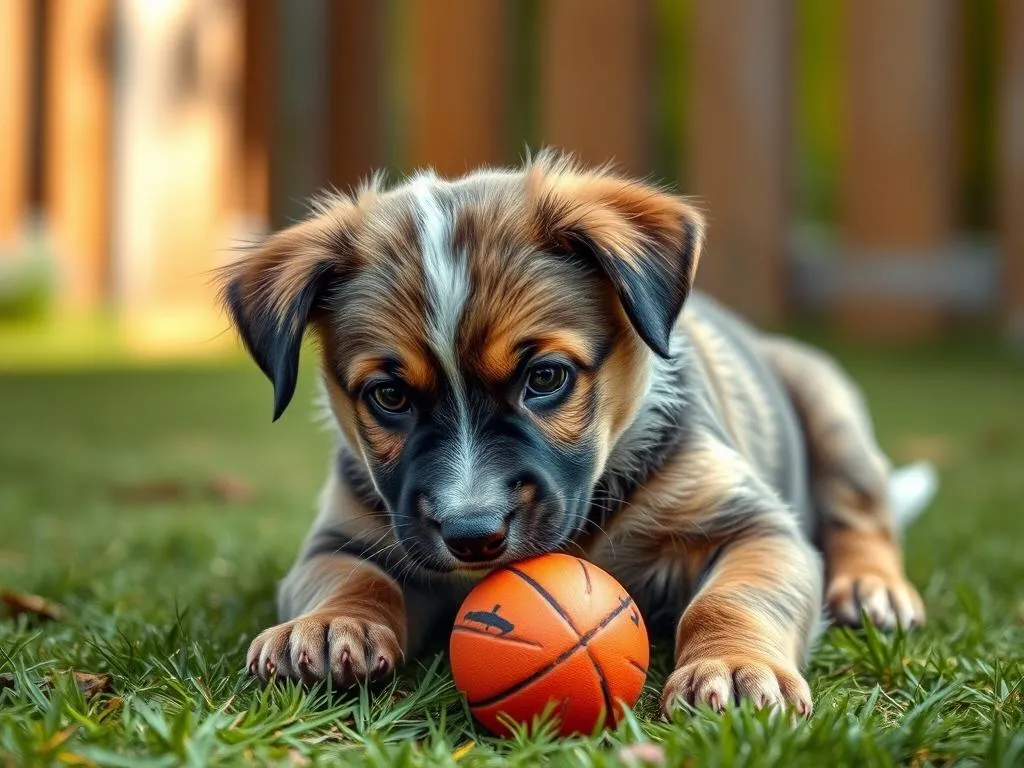
Introduction
Playing is a fundamental aspect of a puppy’s development, providing not just physical exercise but also mental stimulation and socialization. Engaging in great puppy games to play can enhance your puppy’s health and well-being while strengthening the bond between you and your furry friend. In this article, we will explore various types of games, their benefits, and essential items you will need to make playtime both enjoyable and safe for your puppy.
Understanding Your Puppy’s Needs
Physical Exercise
Physical activity is crucial for a puppy’s overall health. Regular exercise helps maintain a healthy weight, promotes good muscle development, and reduces behavioral issues. The recommended daily exercise duration varies based on breed and age:
- Small breeds: 30 minutes to 1 hour
- Medium breeds: 1 hour to 1.5 hours
- Large breeds: 1.5 hours to 2 hours
Always remember to adjust the intensity and duration according to your puppy’s age and energy levels.
Mental Stimulation
Mental stimulation is just as important as physical exercise. Puppies are naturally curious and need activities that challenge their minds. Engaging them in great puppy games to play not only keeps them entertained but also prevents boredom, which can lead to destructive behaviors. Signs of boredom in puppies include:
- Excessive barking
- Chewing on furniture or shoes
- Digging
- Hyperactivity
Socialization
Socializing your puppy through play is vital for their emotional and behavioral development. Interacting with other dogs and people helps them learn appropriate behaviors and reduces anxiety. Consider scheduling playdates with other puppies or enrolling in puppy training classes to enhance their social skills.
Essential Items for Puppy Games
Toys
Toys are essential for keeping your puppy engaged and entertained. Here are different types of toys you should consider:
- Chew Toys: Help satisfy your puppy’s natural instinct to chew and promote dental health.
- Fetch Toys: Balls and frisbees are perfect for playing fetch.
- Interactive Toys: These challenge your puppy mentally and keep them engaged for longer periods.
When selecting toys, ensure they are safe and age-appropriate. Avoid toys with small parts that could pose a choking hazard.
Training Tools
Using training tools like clickers and treats can enhance playtime. Clickers help you mark desirable behaviors, making training more effective. Here’s how to use them effectively during play:
- Click immediately when your puppy performs the desired behavior.
- Follow with a treat to reinforce the behavior.
- Gradually phase out treats as your puppy learns commands.
Safe Play Environment
Creating a safe play environment is crucial. Here are some tips for both indoor and outdoor play:
- Indoor: Clear the area of any hazards, like sharp objects or small items that could be swallowed. Use baby gates to block off dangerous areas.
- Outdoor: Ensure the area is secure and free from toxic plants or harmful debris. Supervise your puppy at all times.
Great Puppy Games to Play
Fetch
Fetch is a classic game that provides both physical exercise and mental stimulation. Here’s how to play:
- Use a ball or a frisbee to throw a short distance.
- Encourage your puppy to retrieve it and bring it back.
- Reward them with praise or treats when they return.
To teach fetch, start with short distances and gradually increase as your puppy learns the game. Ensure you use a toy that’s appropriate for their size to avoid choking hazards.
Tug-of-War
Tug-of-war is another fantastic game that fosters bonding between you and your puppy. Here are some rules to follow for a safe game:
- Use a sturdy tug toy designed for dogs.
- Allow your puppy to win occasionally to build confidence.
- Teach the “drop it” command to ensure safe play.
This game is great for building your puppy’s strength and confidence while also reinforcing training commands.
Hide and Seek
Hide and seek is an exciting game that encourages your puppy’s natural instincts. Here’s how to play:
- Have someone hold your puppy while you hide.
- Call your puppy to come find you.
- Reward them when they locate you.
This game enhances your puppy’s recall skills and provides mental stimulation as they work to find you.
Puzzle Toys
Puzzle toys are excellent for keeping your puppy mentally engaged. These toys challenge them to think and problem-solve to get treats. Some popular puzzle toys include:
- KONG Classic: Fill it with treats or peanut butter for added fun.
- Outward Hound Hide-A-Squirrel: A plush puzzle that encourages your puppy to find hidden toys.
These toys can keep your puppy occupied for long periods, making them a great addition to playtime.
Obstacle Course
Setting up a simple obstacle course is a fun way to provide physical exercise and mental challenges. Here’s how to create one at home:
- Use household items like chairs, boxes, and blankets to create jumps and tunnels.
- Guide your puppy through the course using treats and praise.
Agility games like this improve your puppy’s coordination and confidence while having fun.
Water Games
Water games are fantastic for hot weather. Here are some ideas:
- Sprinkler Play: Let your puppy run through a sprinkler for a refreshing experience.
- Shallow Pool: Fill a kiddie pool with water and let your puppy splash around.
Always supervise your puppy during water play and ensure they are comfortable in the water.
Scent Games
Scent games tap into your puppy’s natural instincts and provide excellent mental stimulation. Here’s a simple scent game to try:
- Hide treats around the house or yard.
- Encourage your puppy to find them using their nose.
This game enhances their sense of smell and keeps them engaged while having fun.
Tips for Enhancing Playtime
Use Positive Reinforcement
Positive reinforcement is key during play sessions. Reward your puppy for good behavior with treats, praise, or playtime. This encourages them to repeat those behaviors, making training more effective.
Keep Sessions Short and Fun
Puppies have short attention spans, so keeping play sessions short is essential. Aim for 10 to 15 minutes of active play, and watch for signs of fatigue or boredom, such as:
- Laying down
- Loss of interest in toys
- Excessive panting
Ending sessions on a high note ensures your puppy remains excited for the next playtime.
Rotate Games to Keep It Fresh
To avoid boredom, rotate the games you play with your puppy. Introduce new toys and activities regularly to keep them engaged. For example, if you played fetch one day, try tug-of-war or puzzle toys the next.
Monitor Your Puppy’s Behavior
Always monitor your puppy’s behavior during playtime. Recognizing signs of tiredness or overwhelm can help you adjust activities accordingly. If your puppy seems disinterested or anxious, it might be time to take a break or switch to a calmer activity.
Common Mistakes to Avoid
Overexertion
Overexertion can lead to injuries and fatigue. Watch for signs like excessive panting, limping, or reluctance to continue playing. Ensure to give your puppy breaks during playtime to rest and hydrate.
Using Inappropriate Toys
Using toys that are too small or made from unsafe materials can pose risks to your puppy. Always choose toys that are specifically designed for dogs and are appropriate for their size and chewing habits.
Ignoring Training Opportunities
Incorporating training into playtime is essential. Use games as an opportunity to reinforce commands and behaviors. For example, practice “sit” or “stay” before starting fetch or tug-of-war.
Conclusion
Engaging in great puppy games to play not only promotes your puppy’s physical and mental well-being but also strengthens the bond between you two. By understanding your puppy’s needs, selecting the right toys, and incorporating various games, you can create a fulfilling playtime experience. Remember to observe your puppy’s preferences and adjust accordingly, ensuring a joyful and enriching environment for your furry friend.
Play is not just a pastime; it’s a critical component of your puppy’s growth and happiness. So, grab some toys, come up with some exciting games, and enjoy every moment of playtime with your puppy!









